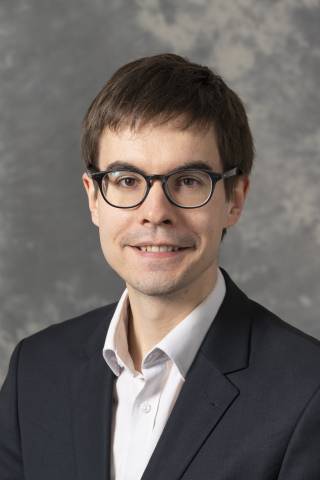
Supervisors: Professor Andrew Wilson and Dr Ben Noble
Email: jakob.hauter.18@ucl.ac.uk
Present status: PhD graduate
Title of Thesis: A Digital Open Source Investigation of How War Begins: Ukraine’s Donbas in 2014 (available at: https://discovery.ucl.ac.uk/id/eprint/10145765/)
Thesis Abstract: This dissertation demonstrates the usefulness of digital open source information (DOSI) for academic research on the causes of war through an in-depth case study of the conflict in eastern Ukraine’s Donets Basin (Donbas). It argues that the current social science literature is in need of theoretical and methodological innovation to operate in the abundant but murky information environment that surrounds the Donbas war and other conflicts of the social media age. The result is a deep divide in the academic literature between scholars who emphasize domestic causes of the Donbas war and those who emphasize Russian involvement. To address this shortcoming, my dissertation develops new theoretical and methodological frameworks. My theoretical framework combines conflict escalation theory with the historical institutionalist concept of critical junctures. Based on this framework, I develop an escalation sequence model of the Donbas conflict which divides the formative phase of the war into six critical junctures. Moreover, my theoretical framework draws attention to intervention and delegation as two distinct modes of external actor involvement in these critical junctures. My methodological framework combines process tracing with the journalistic practice of DOSI analysis to shift the methodological focus towards source criticism and probabilistic reasoning. I argue that this shift towards digital forensic process tracing is essential to make social science methodology fit for the social media age. The six empirical chapters of my dissertation apply digital forensic process tracing to the six critical junctures of the Donbas war’s escalation sequence. For each critical juncture, they assess the available open source evidence of domestic causes and Russian interference. I argue that there is convincing evidence that Russian involvement was the primary cause of four of the six critical junctures. For this reason, my dissertation concludes that the Donbas war is primarily an interstate war between Russia and Ukraine.
Teaching:
Between October 2019 and December 2021, I taught tutorials in the first-year undergraduate modules Understanding Politics I and II. In 2020, I completed the Arena One Teaching Associate Programme and successfully applied for Advance HE Associate Fellowship (AFHEA).
Academic Publications:
Hauter, Jakob. 2021. “Forensic Conflict Studies: Making Sense of War in the Social Media Age.” Media, War & Conflict. Advance Online Publication (4 August 2021). Open access. Available at: https://doi.org/10.1177/17506352211037325
Hauter, Jakob (ed.). 2021. Civil War? Interstate War? Hybrid War? Dimensions and Interpretations of the Donbas Conflict in 2014–2020. Stuttgart: ibidem-Verlag. Available via: https://www.ibidem.eu/en/reihen/gesellschaft-politik/soviet-and-post-sov...
Hauter, Jakob. 2021. “How the War Began: Conceptualizing Conflict Escalation in Ukraine’s Donbas.” The Soviet and Post-Soviet Review 48 (2): 135–163. Open access. Available at: https://doi.org/10.30965/18763324-20201380
Hauter, Jakob. 2019. “Delegated Interstate War: Introducing an Addition to Armed Conflict Typologies.” Journal of Strategic Security 12 (4): 90–103. Open access. Available at: https://doi.org/10.5038/1944-0472.12.4.1756
Presentations:
In April 2021, I gave a presentation on the state of my research as part of the SSEES Research Student Seminar Series. A recording is available here: https://www.youtube.com/watch?v=sLRP5zGE5Z4
In November 2019, I presented my research at the Danyliw Research Seminar on Contemporary Ukraine at the University of Ottawa. Paper and presentation are available here: https://www.danyliwseminar.com/jakob-hauter
Other Projects:
In April 2021, I wrote an article on my research and its current affairs implications for The Conversation. It is available here: https://theconversation.com/ukraine-rapid-escalation-of-conflict-in-2014-has-lessons-for-today-157896
In 2018/2019, I contributed to a project by the Forensic Architecture research agency, which visualizes open source evidence of Russian involvement in the August 2014 Battle of Ilovaisk in eastern Ukraine: https://ilovaisk.forensic-architecture.org/ and https://forensic-architecture.org/investigation/the-battle-of-ilovaisk
 Close
Close

